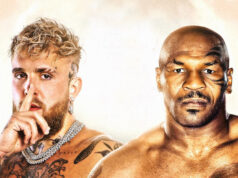In recent years, a new genre of film has risen to prominence that combines elements of comedy and drama to deliver important messages to audiences about key issues. It’s called the impact comedy.
After watching an impact comedy film, viewers might step away and think about an issue differently. They may even end up changing their behavior. Think about how “An Inconvenient Truth” used a funny “Simpsons”-esque sketch to teach about climate change, and how so many viewers tuned into global warming news and modified their habits after seeing the documentary.
In “Coffee Wars,” a new impact comedy, hilarious moments—and a nail-biting competition at the World Barista Championship—are used to address social themes from veganism to ethical consumerism to female entrepreneurship. When you watch this film, you’ll laugh until you cry, but you will also think critically about the way your daily consumption patterns impact the world around you. Now that’s a powerful film.
The Value of Veganism
The main character in the film, Jo, played by vegan activist and British singer-songwriter Kate Nash, is a dedicated vegan. Jo spurns meat and dairy after learning that her parents, farmers in the English countryside, slaughtered her beloved cow and served her for dinner one evening. When Jo gets older, she opens a vegan coffee shop and participates in the World Barista Championship, where she competes with an almond milk latte. Jo’s embrace of the vegan latte on the world’s highest stage of coffee making is a bold, borderline scandalous decision. Will it pay off? You’ll have to watch “Coffee Wars” to find out. After you see the film, you may even seek to phase out animal products from your diet.
The Importance of Being Ethical Consumers
Ethical consumerism is a key topic in “Coffee Wars.” Being an ethical consumer means thinking about what you buy and being mindful when it comes to the companies that you support with your dollars. Ethical consumerism can include adopting a vegan diet, a major theme in “Coffee Wars.” Veganism is better for the environment and, of course, the animals, who don’t have to suffer on factory farms. Chickens don’t have to live in crammed cages and cows don’t have to be forced to produce milk over and over again. Being an ethical consumer can also mean purchasing from food companies that are organic and utilize sustainable farming practices that are good for the earth. Companies that give a percentage of their profits to charity are also worth supporting if you care about ethical consumerism.
The Power of Female Entrepreneurship
Like Jo in “Coffee Wars,” more women own businesses today than ever before. Still, women own fewer businesses than men, so it’s important to support women trying to make it in business. Jo has her ups and downs with being a business owner–like every entrepreneur–but she works hard to keep her vegan coffee shop on track. She will do whatever it takes while being uncompromising about her beliefs. That’s what makes her so compelling: she won’t give up on her values, no matter what the cost.
When watching “Coffee Wars,” you’ll laugh and learn valuable lessons at the same time. You’ll walk away from the movie entertained and know that you learned something new and relevant to today’s issues.














